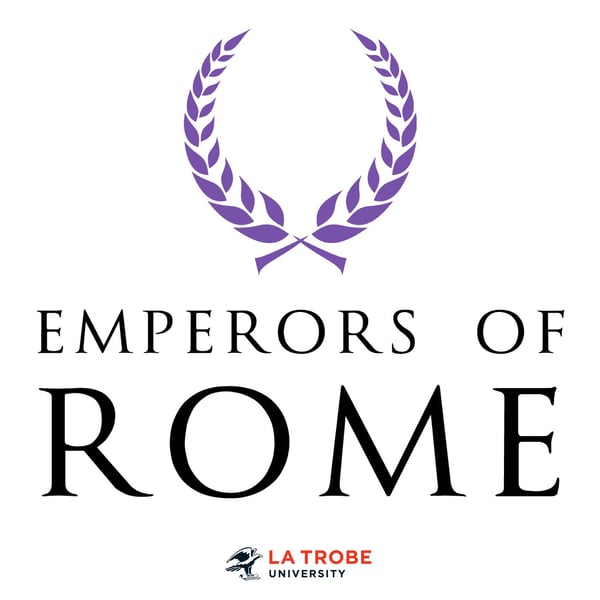Interlude - Latin Pronunciation
Emperors of Rome
La Trobe University
4.8 • 1.7K Ratings
🗓️ 17 February 2016
⏱️ 10 minutes
🧾️ Download transcript
Summary
Transcript
Click on a timestamp to play from that location
| 0:16.0 | Okay, so we've had a number of people say how much they liked our last episode, which was on Latin terms and what have you, but what we didn't explain is we went into how to say certain words like watch Matthew stuff this up. Wenny Weedy Wechy. |
| 0:18.0 | No, that's the hard sea remember. |
| 0:20.4 | Weenie weedy wecky. |
| 0:21.7 | Wenny wecky. Wenny weedy wedy weaky and how different Julius Caesar's name would have been so it would have been |
| 0:27.0 | eulios eulias caiser |
| 0:30.0 | so completely not Julius cesar We know how to pronounce these Roman |
| 0:35.0 | words, but how do we know how to pronounce these Roman words? It's not the Latin |
| 0:40.2 | that the Catholic Church is familiar with or it's not the Latin that we get in |
| 0:44.8 | cinema of any kind or in television shows that deal with ancient Rome so how do we |
| 0:50.7 | know that that's the pronunciation? Well, we know some things from grammarians and grammarians are writers who are usually writing in around the fourth, fifth centuries centuries in Latin about Latin. So these are books that not many people have looked |
| 1:07.8 | at, they're quite obscure by people like, there's one called Priscian, whose name really should be pronounced Priscian, |
| 1:14.8 | according to the rules we just laid out because he has a C in his name. |
| 1:18.6 | And there's another one called Victorinus or Victorinus. |
| 1:29.7 | And they write about people making mistakes or the way classical Latin should be which is an indication that the language was changing, language changes all the time, and they're trying to fix what classical Latin was, in other words, the Latin of Cicero and Virgil and Caesar. And this is good for us in that it gives us an indication, |
| 1:48.0 | but of course they're writing four or five centuries distance and so we can't take it as absolute truth but it's the best |
| 1:57.0 | we do have some earlier sources that talk about it for example someone |
| 2:01.1 | people might have heard of quint, who wrote a handbook on rhetoric. |
| 2:06.0 | He was writing around 100 CE. He's concerned with the way that you should project yourself the way you should be a great orator, but occasionally he deals with things like |
| 2:17.0 | spelling errors, which he's quite strong on, he says that if you spell things wrongly wrongly then that will lead to pronunciation errors. |
| 2:25.4 | And that's one of the things that tells us that Latin generally is pronounced how it's written. |
| 2:31.6 | Now that doesn't tell you everything about Latin, but one thing it does |
| 2:34.8 | tell you is there's no silent syllables. In other words, Latin is very, very consistent for |
... |
Please login to see the full transcript.
Disclaimer: The podcast and artwork embedded on this page are from La Trobe University, and are the property of its owner and not affiliated with or endorsed by Tapesearch.
Generated transcripts are the property of La Trobe University and are distributed freely under the Fair Use doctrine. Transcripts generated by Tapesearch are not guaranteed to be accurate.
Copyright © Tapesearch 2025.

